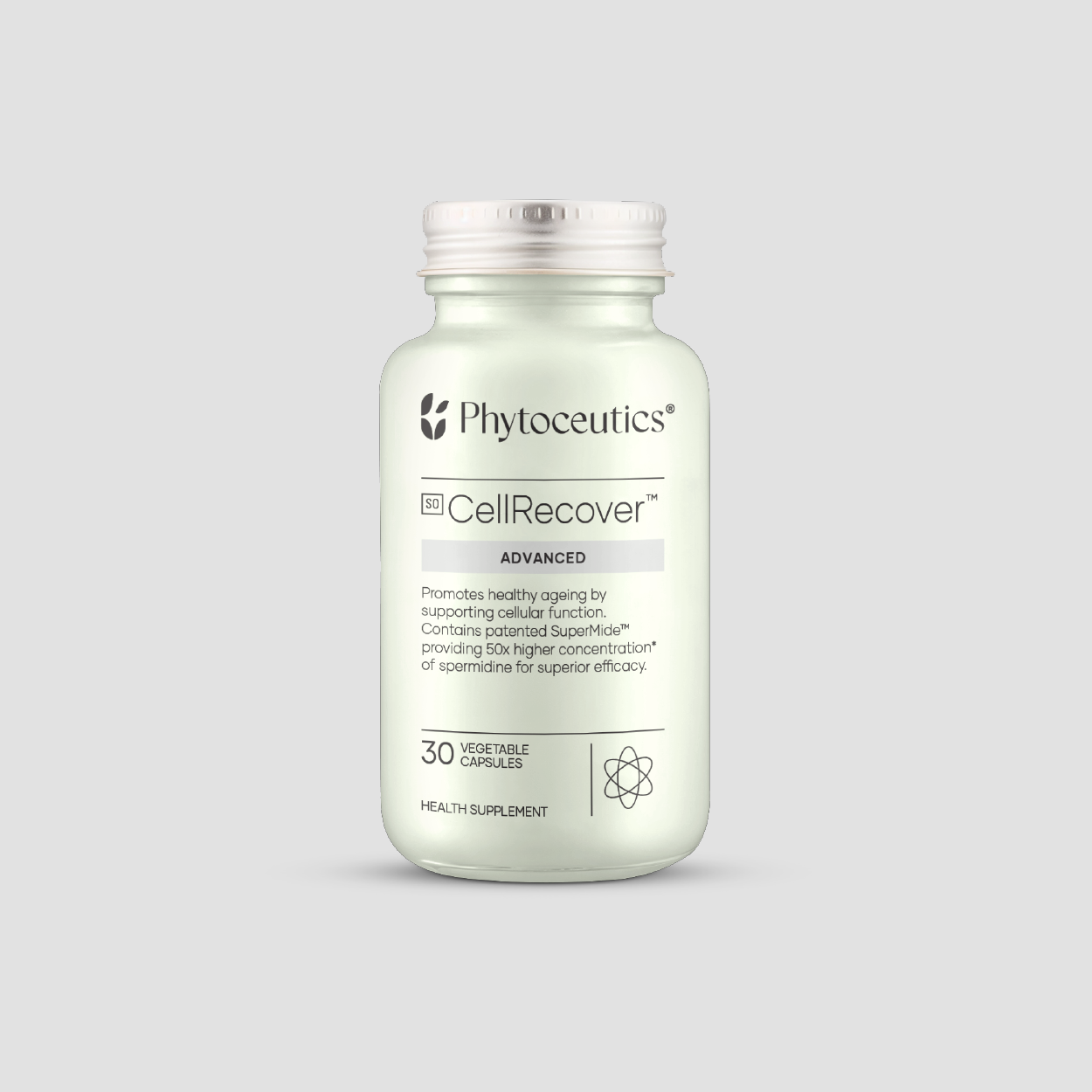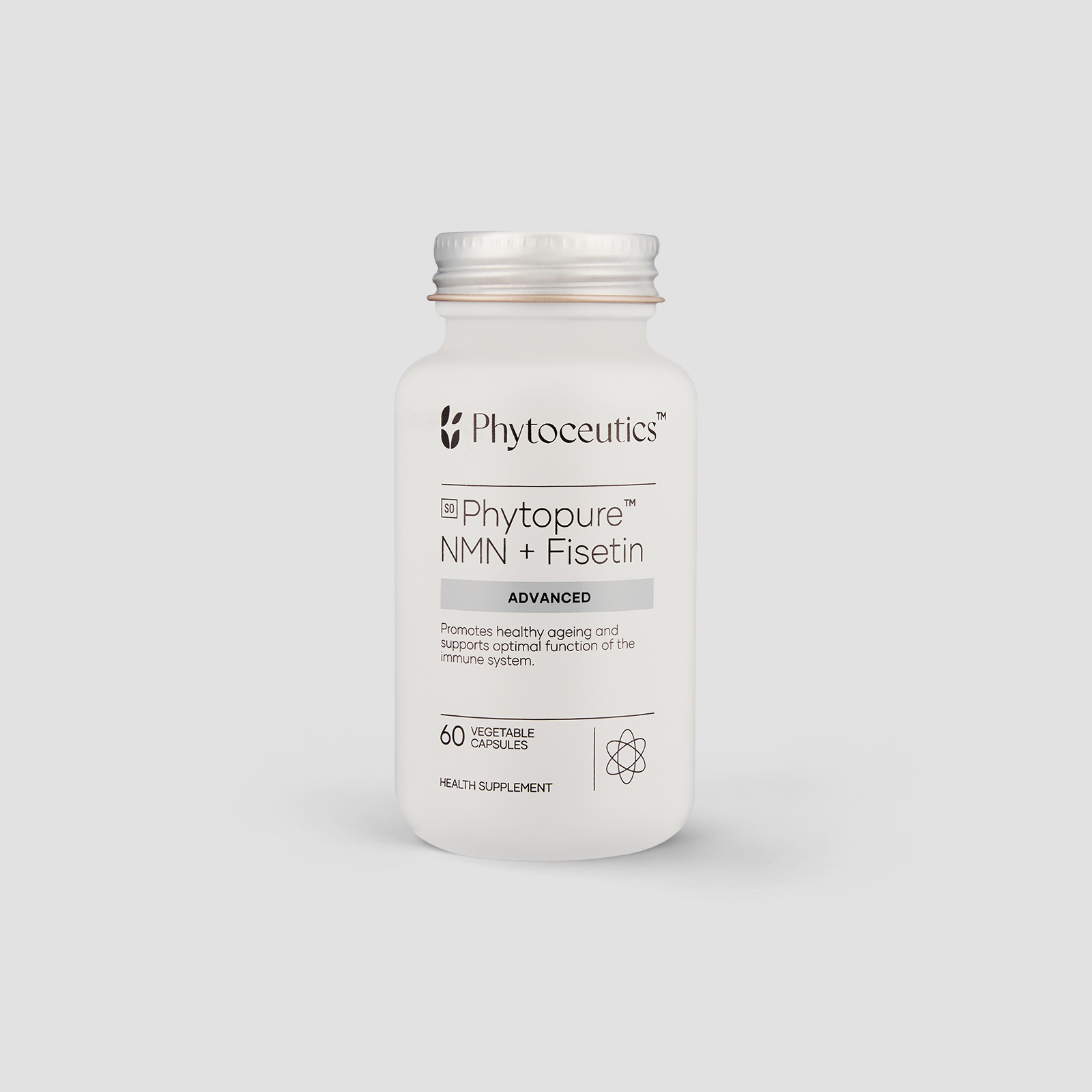Though researchers are still uncovering its precise mechanisms, evidence suggests that lifestyle interventions like a nutrient-rich diet, supplementation, regular physical activity, stress management, and quality sleep can help mitigate its effects. Additionally, targeted supplementation with anti-inflammatory compounds such as omega-3 fatty acids, senolytics, and antioxidants may further support the body’s ability to manage inflammation.
What Is Inflammageing?
Inflammageing is a term that describes the chronic, low-grade inflammation that typically accompanies ageing. This persistent inflammatory state may predict a variety of age-related diseases, including cardiovascular disease (CVD), diabetes, and neurodegenerative disorders. The term was first coined by Claudio Franceschi in 2000 and has since gained recognition as a key factor in understanding longevity and ageing-related health challenges [1].
What Are the Causes of Inflammageing?
Several biological and environmental factors contribute to inflammageing:
- Immunosenescence – Ageing weakens the immune system, leading to dysfunctional responses that are either insufficient or maladaptive. This decline in immune function contributes to increased susceptibility to infections, chronic diseases, and reduced ability to eliminate senescent (aged or “zombie”) cells.
- Proinflammatory Cytokines – Elevated levels of proinflammatory cytokines are closely associated with inflammageing and increased mortality in ageing populations. These molecules perpetuate chronic inflammation, accelerating tissue damage and age-related health decline.
- DAMPs and SASP – The accumulation of damage-associated molecular patterns (DAMPs) – molecules released by damaged cells – and the senescence-associated secretory phenotype (SASP) – molecules secreted by senescent (aged) cells – fuels chronic inflammation. These inflammatory signals contribute to the persistent immune activation characteristic of inflammageing, further impairing tissue function.
- Mitochondrial Dysfunction – Age-related mitochondrial decline plays a critical role in cellular ageing and inflammation. Dysfunctional mitochondria release inflammatory signals, such as reactive oxygen species (ROS) and mitochondrial DNA fragments, which activate immune pathways and exacerbate inflammageing. [1]
- Frailty and Muscle Loss – Research suggests that inflammageing is a marker of accelerated ageing and is associated with a heightened susceptibility to stressors, leading to frailty, muscle loss, and decreased mobility [1].
Accumulation of Senescent Cells in Tissues
As cells age, they can enter a state called senescence, where they stop dividing but stay active. These cells don’t die off easily and release inflammatory substances, which can lead to chronic inflammation (inflammageing) and weaken the immune system over time. Researchers have found that memory T cells, which help the immune system remember past infections, show specific DNA changes linked to ageing in both humans and mice. Normally, the immune system clears out these old cells, but this process slows down with age. Some senescent cells also produce signals that help them avoid being removed, allowing them to build up in tissues.
To combat the build-up of senescent cells, senolytics – a class of compounds that induce apoptosis (the clearance of old or abnormal cells) in these cells – have emerged as a promising strategy. Senolytics have been shown to prevent mitochondria-derived DNA-induced inflammation in ageing organs [2].
The Role of Mitochondria in Inflammageing
Mitochondria, often called the powerhouse of the cell, play a crucial role in inflammageing. Dysfunctional mitochondria release damage-associated molecular patterns (DAMPs), triggering chronic inflammation. ROS (reactive oxygen species) produced by dysfunctional mitochondria can also cause inflammation and cell senescence, leading to inflammageing. NMN (Nicotinamide Mononucleotide) supplementation has been shown to improve mitochondrial function, thereby reducing inflammatory signals and delaying the ageing process [2].
Does Inflammageing Cause Frailty?
Chronic inflammation is increasingly recognised as a key factor contributing to various age-related diseases, even those traditionally considered unrelated, such as cardiovascular disease, diabetes, chronic kidney disease, depression, and dementia. Elevated inflammatory markers in the blood are strongly linked to greater muscle mass and strength loss, reduced mobility, impaired lower-extremity function, and decreased physical activity in older adults – all essential components of frailty. Inflammageing may be a key reason why older adults become more vulnerable to stress and lose physical strength over time.
Studies show that high and rapidly increasing levels of IL-6 (Interleukin-6 – a protein that plays a role in inflammation) can speed up the development of chronic diseases. Inflammation also plays a major role in worsening multiple health conditions and contributes to physical decline and disability. Chronic inflammation is especially common in frail individuals, particularly those with sarcopenia – a condition that causes severe loss of muscle strength and mass with age [1].
Combatting Inflammageing with Calorie-Restriction
Calorie restriction (CR), or eating fewer calories while still getting enough nutrients, is considered one of the best ways to slow ageing. It may help extend lifespan by improving metabolism, hormone balance, and overall body function. CR reduces oxidative stress, which can lead to age-related diseases, and helps control inflammation by regulating key pathways like NF-κB, mTOR, and MAPK. It also lowers the levels of inflammatory markers (NF-κB, IL-β, IL-6, and TNF-α) that increase with age, helping to combat inflammageing [3].
Combatting Inflammageing with Natural Supplements
While physical activity and caloric restriction have been shown to reduce inflammation, certain bioactive compounds can also help modulate inflammatory pathways. Among the most promising are:
1. Curcumin
Curcumin, the active compound in turmeric, has potent anti-inflammatory properties. It helps to downregulate NF-κB, a key player in inflammation, and may reduce oxidative stress associated with inflammageing. Try Biomax® Bio-Curcumin® with BCM-95® for a patented formulation resulting in a sevenfold increase in bioavailability compared to regular curcumin supplements.
2. Berberine
Berberine has been shown to improve metabolic health by modulating glucose metabolism and reducing pro-inflammatory cytokines. It may also support gut health, reducing inflammation triggered by intestinal permeability. Try Biomax® Bio-Berberine® Complex containing Origine 8® green tea extract and chromium, providing additional antioxidant and metabolic support.
3. NMN (Nicotinamide Mononucleotide)
NMN is a precursor to NAD+, a vital coenzyme involved in mitochondrial function. Ageing reduces NAD+ levels, contributing to mitochondrial dysfunction and increased inflammation. NMN supplementation may help restore mitochondrial health and combat inflammageing [2]. Try Phytoceutics® Phytopure® NMN + Fisetin Advanced containing patented Uthever®, the only NMN clinically proven to increase NAD+ levels in humans.
4. Omega-3
Low omega-3 levels have been linked to reduced life expectancy, with a deficiency carrying a mortality risk comparable to smoking. One of the key reasons omega-3s are so vital is their role in combating inflammageing. Omega-3s help regulate this process through specialised pro-resolving mediators (SPMs), bioactive molecules that reduce systemic and vascular inflammation. Recent research highlights the powerful impact of omega-3s on biological ageing.
A study using Phenotypic Age Acceleration (PhenoAgeAccel)—a measure that estimates how fast someone is ageing biologically—found that individuals with higher omega-3 intake exhibited slower biological ageing. Participants who consumed greater amounts of omega-3s had lower age acceleration, meaning their bodies aged at a slower rate compared to those with lower intake [4]. Try Biomax® Purest Omega 3 for a pure omega-3 supplement containing both EPA and DHA, with a leading TOTOX score (measures rancidity) ensuring a pure product.
5. Spermidine
Spermidine has important effects on the body that may help support healthy ageing, possibly by reducing inflammation. Spermidine supplementation lowers chronic inflammation by reducing TNF-α levels, which helps prevent and slow down cardiovascular problems. Additionally, spermidine has strong anti-inflammatory effects in several ways. First, it reduces the buildup of harmful molecules called reactive oxygen species (ROS) and stops the movement of a protein called nuclear factor-kappa B (NF-κB). Second, spermidine helps prevent immune cells from migrating in response to inflammation [5]. Try Phytoceutics® CellRecover™ Advanced containing patented SuperMide™ spermidine and antioxidant quercetin to promote cellular health and support inflammation.
As the global population ages, addressing inflammageing has become a major public health priority. Researchers have found that older individuals often exhibit increased levels of pro-inflammatory markers in their blood and tissues. While inflammation is a natural immune response, its prolonged activation can lead to tissue damage, immune system dysfunction, and an increased risk of chronic diseases. By proactively addressing chronic inflammation, we not only have the potential to extend lifespan but also enhance healthspan—ensuring more years of vitality, mobility, and cognitive function.
This unregistered medicine has not been evaluated by SAHPRA for its quality, safety, or intended use. Remember to always consult with your healthcare practitioner before starting a new supplement regimen.
Disclaimer: This content is for informational purposes only and does not constitute medical advice. Always consult with your healthcare provider before starting any new supplement, especially if you are pregnant, nursing, have a medical condition, or are taking prescription or chronic medication.





